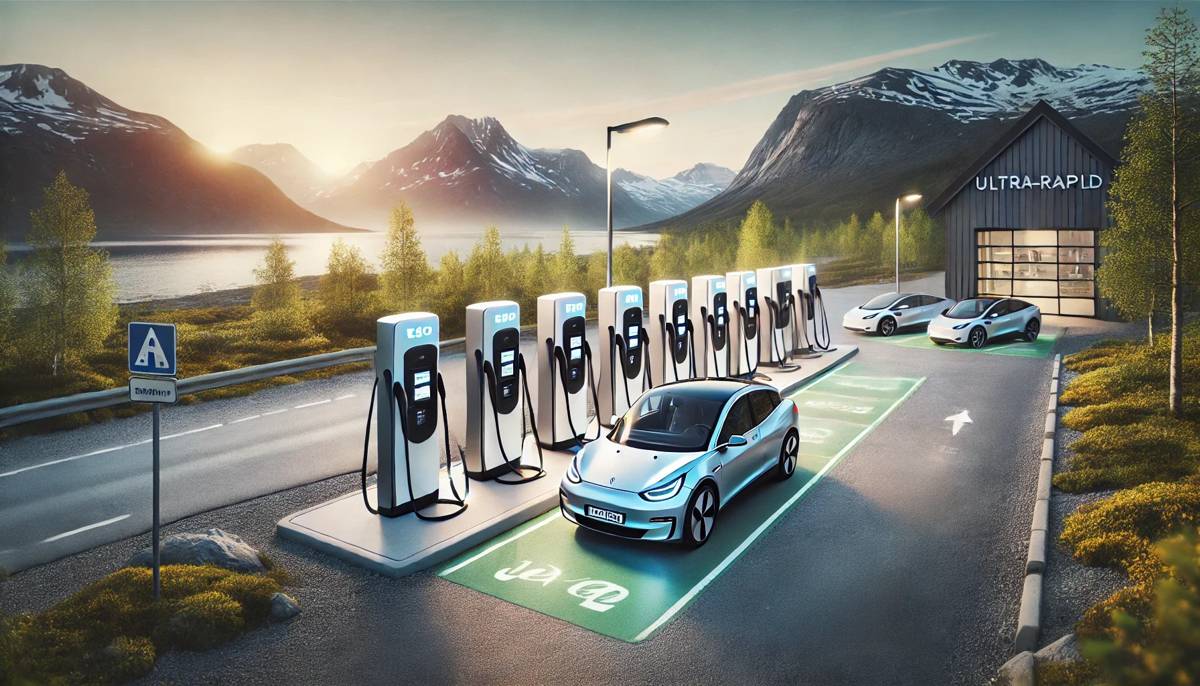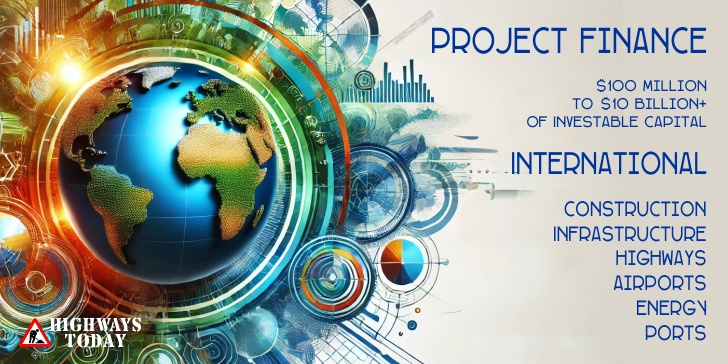KfW IPEX-Bank Fuels Recharge’s EV Charging Network Expansion in the Nordics
As electric vehicles (EVs) steadily replace their fossil-fuelled counterparts across Europe, the need for accessible, fast, and reliable charging networks has never been more critical.
Leading the charge in the Nordic region is Recharge, the area’s largest rapid EV charging network operator. Recently, this pioneering company secured a substantial financial boost of €180 million in multi-currency facilities, with a key contribution of €45 million from Germany’s KfW IPEX-Bank.
This strategic funding marks a significant milestone for both Recharge and KfW IPEX-Bank, underlining their commitment to a greener, more electrified future.
Recharge’s Impact in the Nordics
Since its founding in 2011, Recharge has transformed the EV landscape across the Nordics, where EV adoption is among the highest globally. Currently, the company operates more than 4,500 charging points across 800 strategic locations, predominantly in Norway—the world’s leader in EV adoption per capita. Recharge’s network supports around 300,000 monthly charging sessions, making it one of the most reliable and widely used networks worldwide.
But that’s not all—Recharge’s state-of-the-art ultra-rapid chargers can power an EV from 20% to 80% in just 20 minutes. This swift charging technology is essential for a region where severe weather conditions make efficient, dependable charging even more critical. Recharge’s commitment to building an eco-friendly infrastructure goes hand in hand with its partnerships with big brands such as IKEA, ESSO, and McDonald’s, further ensuring accessible charging options in busy, high-traffic areas.
Financing Sustainable Innovation
KfW IPEX-Bank, a subsidiary of the renowned KfW Group, has a long-standing reputation for championing sustainable industrial innovation and financing projects that drive economic and environmental transformation. Specialising in project and export finance, the bank assists German and European companies by structuring financing packages that support exports, infrastructure investments, and climate change mitigation projects worldwide.
In this latest venture, KfW IPEX-Bank’s €45 million commitment is a testament to its dedication to fostering sustainable solutions in the mobility sector. “With this financing for our new customer Recharge, we build out our electric vehicle charging infrastructure portfolio and underline our leading position in this growing segment,” said Andreas Ufer, Member of the Management Board of KfW IPEX-Bank. “This is perfectly in line with our mission to support the transformation in the mobility sector.”
As a specialist in financing complex infrastructure projects, KfW IPEX-Bank is known for its role as a trusted partner, not only providing capital but actively engaging in consortium financing with other banks, institutional investors, and insurance firms. This collaborative approach allows KfW IPEX-Bank to amplify its impact, ensuring that vital projects like Recharge’s charging network expansion receive robust financial backing.
Why Recharge’s Expansion Matters
Recharge’s expansion is timely, responding to surging EV adoption across the Nordic region and beyond. In Norway alone, EVs represent over 80% of new car sales, thanks to progressive government incentives and a society that prioritises environmental responsibility. However, this rapid EV uptake demands an equally fast expansion of charging infrastructure to prevent bottlenecks that could discourage further adoption.
The €180 million funding will help Recharge accelerate its infrastructure development, focusing on:
- New Charging Points: Increasing the number of charging stations in both urban and rural areas, bridging accessibility gaps.
- Ultra-Rapid Charging Technology: Rolling out more ultra-rapid chargers to meet the growing demands of time-conscious EV drivers.
- Sustainable Energy Solutions: Integrating green energy sources into its charging stations, aligning with its commitment to decarbonise transportation.
In fact, Recharge’s infrastructure growth is expected to contribute significantly to the Nordic countries’ ambitious carbon reduction goals. As the company continues to innovate with ultra-fast charging and energy-efficient solutions, it’s helping pave the way for a sustainable, EV-powered future.
The Power of Collaboration
Recharge’s partnerships with prominent names like IKEA, ESSO, and McDonald’s not only broaden its network reach but also demonstrate the viability of EV charging infrastructure as part of everyday life. Collaborating with these major brands means Recharge can place its chargers in high-visibility locations, encouraging EV adoption among a wider audience.
Moreover, partnerships with entities like Infracapital, the British infrastructure investor that owns Recharge, bring substantial resources and expertise, further cementing Recharge’s role as a leader in sustainable energy and EV infrastructure. Together, these partnerships create a robust foundation for Recharge’s continued success and expansion in a rapidly evolving market.
KfW IPEX-Bank’s Role in a Global Energy Transition
As a key player in Europe’s green finance ecosystem, KfW IPEX-Bank is deeply invested in technologies of the future. From renewable energy projects to sustainable transport solutions, the bank’s portfolio reflects its commitment to fostering a balanced economy that harmonises environmental, social, and economic goals.
This €45 million contribution to Recharge isn’t an isolated move but part of a broader, long-term strategy to invest in green mobility. KfW IPEX-Bank regularly collaborates with European companies operating in key sectors, offering tailored financing solutions that enable clients to develop and expand green innovations that resonate on a global scale.
With Recharge, KfW IPEX-Bank has found a partner aligned with its values and ambitions, making this financing arrangement a promising step toward a cleaner transportation ecosystem.
Future Prospects for Recharge and KfW IPEX-Bank
Looking ahead, Recharge’s growth potential remains strong. As the demand for EVs continues to rise, so too will the need for efficient and reliable charging infrastructure. Recharge’s forward-looking approach and its ability to adapt to technological advancements will likely propel its expansion not only within the Nordics but across Europe.
For KfW IPEX-Bank, this project reinforces its leading position as a financier of environmentally progressive ventures. By backing Recharge, the bank demonstrates its commitment to an electrified and decarbonised future. As more European countries implement EV incentives and set ambitious climate targets, the bank’s experience and expertise in structuring complex, cross-border financing solutions will become increasingly vital in supporting projects that make a real difference.
Driving Toward a Greener Future
The partnership between KfW IPEX-Bank and Recharge represents a significant step toward a sustainable future. As the world continues to grapple with the effects of climate change, investments in green mobility infrastructure like Recharge’s charging network are essential. Not only do they enable EV adoption, but they also showcase the power of collaboration in tackling global challenges.
By continuing to expand its ultra-fast charging network and fostering strategic alliances, Recharge is well-positioned to drive the EV transition across the Nordics and beyond. Meanwhile, KfW IPEX-Bank’s financial support is an affirmation of its commitment to green growth and innovation. Together, they’re not just building a network—they’re paving the road toward a sustainable tomorrow.






























